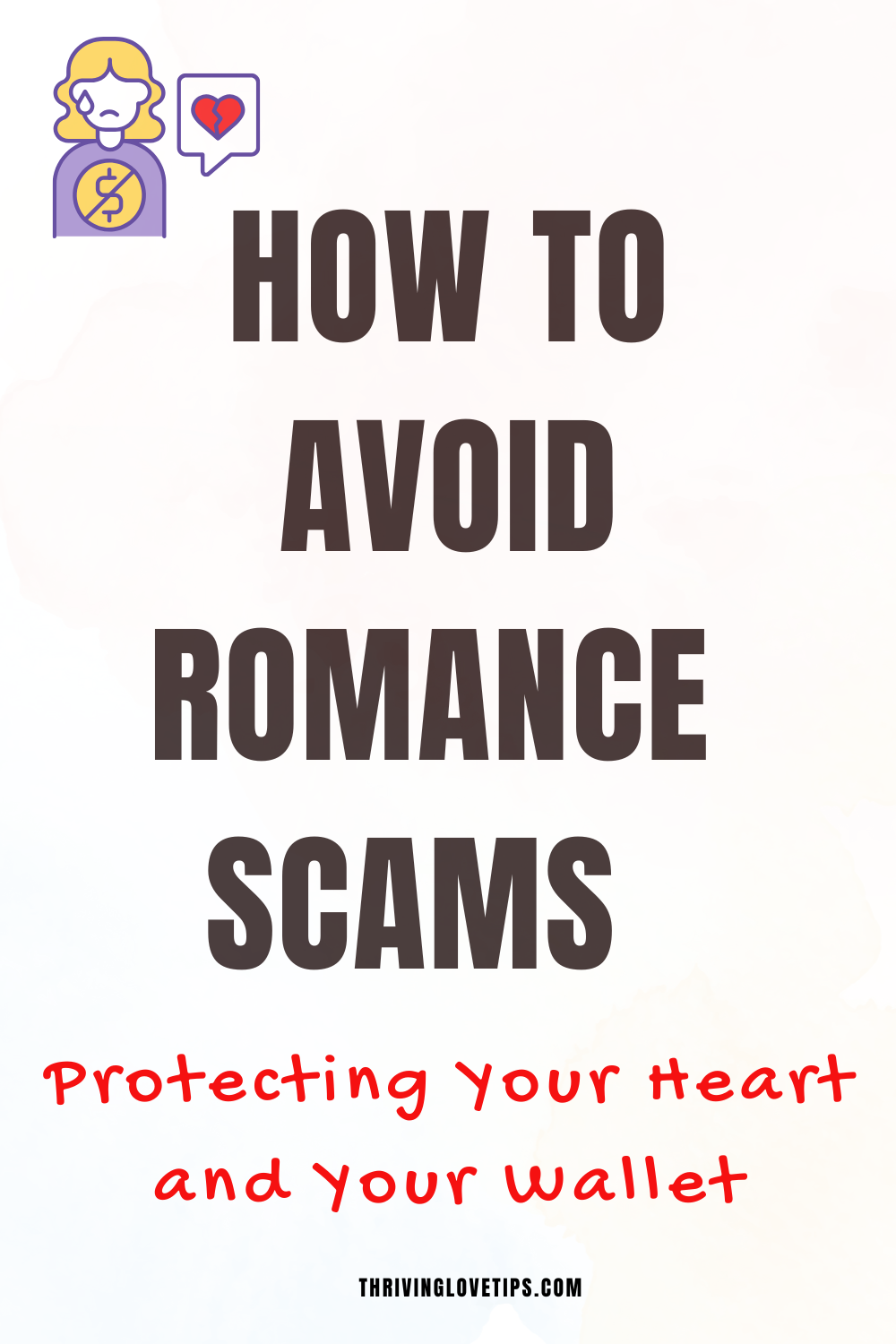You matched with someone online who seems absolutely perfect. They’re attractive, charming, attentive, and say all the right things. They tell you you’re special, that they’ve never connected with anyone like this before, that fate brought you together. Within days or weeks, they’re talking about your future together, professing deep love, and making you feel like you’ve finally found your soulmate. There’s just one small problem: they need money. Maybe it’s a family emergency, a business deal gone wrong, or a problem with their bank account. They promise to pay you back, of course. They love you, after all.
If this scenario sounds familiar, you might be dealing with a romance scammer. These con artists prey on people’s desire for love and connection, creating elaborate fake personas and emotional bonds for one purpose: to steal your money. Romance scams have exploded in recent years, costing victims billions of dollars globally and leaving behind not just financial devastation but also profound emotional trauma.
The most dangerous thing about romance scams is that they can happen to anyone. You might think you’re too smart to fall for something like this, that you’d recognize a scammer immediately, that only naive or desperate people get caught in these schemes. But romance scammers are sophisticated, patient, and experts at psychological manipulation. They know exactly which emotional buttons to push, and they’re very good at what they do.
Understanding how these scams work and knowing the warning signs can help you protect yourself while remaining open to genuine connections. Because the goal isn’t to become cynical or to stop dating altogether. It’s to approach online relationships with awareness and healthy skepticism, so you can spot the red flags before you lose your heart or your savings.

Understanding How Romance Scams Work
Romance scammers follow predictable patterns, even though each story might seem unique. They typically operate on dating sites, social media platforms, or even through direct messages on various apps. They create fake profiles using stolen photos, often of attractive people, and craft compelling backstories designed to appeal to their targets.
The scam usually unfolds in stages. First comes the love bombing phase, where the scammer showers you with attention, compliments, and declarations of intense feelings. They move fast, professing love within days or weeks, creating a sense of urgency and intensity that feels romantic but is actually a manipulation tactic.
According to the Federal Trade Commission, romance scammers reported losses of over $1.3 billion in 2022 alone, with the median individual loss being $4,400. But many victims lose far more, sometimes their entire life savings, retirement funds, or money borrowed from family and friends.
The scammer works to build trust and emotional dependence, often communicating constantly throughout the day. They might text you good morning and good night, share details about their (fake) life, and encourage you to share intimate details about yours. This creates a false sense of closeness and makes you feel like you truly know them.
Then comes the crisis. There’s always a reason they need money: a sick relative, a business emergency, problems accessing their own funds, visa or travel issues, or even claims of being robbed or stranded. The requests start small, testing your willingness to help, then escalate. Each time you send money, there’s a new emergency that requires more.
Throughout this process, the scammer will have excuses for why they can’t meet in person or video chat. They’re working overseas, they’re on an oil rig, they’re deployed with the military, their camera is broken, their internet is unreliable. These excuses are designed to maintain the illusion while preventing you from discovering the truth.
Red Flags That Scream Scammer
Learning to recognize the warning signs of romance scams can save you both money and heartbreak. While no single red flag guarantees someone is a scammer, multiple warning signs together should make you extremely cautious.
They profess love incredibly quickly. Genuine relationships develop over time. If someone is declaring their love within days or weeks of first contact, especially before you’ve ever met in person, that’s a major red flag. Scammers use intense emotional language to create attachment and cloud your judgment.
Their profile seems too good to be true. Scammers often use photos of models or very attractive people, sometimes even celebrities. Their profile might describe an impossibly perfect person: successful, adventurous, sensitive, and deeply interested in finding real love. Run a reverse image search on their photos. If the same image appears associated with different names or on modeling sites, you’ve found a scammer.
They can’t or won’t video chat. In today’s world of smartphones and ubiquitous internet, anyone genuinely interested in you can find a way to video chat. Scammers will have endless excuses: broken camera, poor internet, working in a remote location, or they’re just “not comfortable” with video yet. Don’t accept these excuses. If someone won’t show you their real face in real time, assume they’re hiding something.
Their story doesn’t add up. Pay attention to inconsistencies in their backstory. Do the details change? Do their grammar and vocabulary shift? Do they claim to be from one place but use phrases or spellings from another? Scammers often work from scripts and sometimes forget details they’ve previously shared, or have multiple targets and mix up stories.
They’re always somewhere far away. Romance scammers rarely target people nearby because proximity makes it harder to avoid meeting in person. They’re often overseas, working abroad, or temporarily away but planning to return soon (they never do). This distance is essential to their scheme because it explains why they can’t meet you and why they might have “emergencies” that require money transfers.
They ask for money or financial information. This is the ultimate red flag. No one who genuinely cares about you will ask for money, especially not early in a relationship. The request might seem reasonable at first, a small loan during an emergency, but it’s always a scam. Similarly, anyone asking for your bank account information, credit card numbers, or Social Security number is definitely a scammer.
They want to move communication off the platform. Scammers often quickly ask to move conversations from dating sites to email, text, or messaging apps. They do this partly to avoid detection by platform security systems and partly to make the connection feel more personal and legitimate. While moving to personal communication isn’t always a red flag, combined with other warning signs, it’s suspicious.
Protecting Yourself While Dating Online
Staying safe from romance scams doesn’t mean giving up on finding love online. Millions of people successfully meet genuine partners through dating apps and websites. It just means being smart, cautious, and refusing to let emotions override your common sense.
Keep early conversations on the platform. Dating sites and apps have systems to detect and remove scammers. By keeping conversations on the platform initially, you benefit from these protections. Don’t give out personal contact information like your phone number, email, or home address until you’ve met someone in person and verified they are who they claim to be.
Do your research. Google their name along with words like “scam” or “scammer.” Look for their presence on social media and verify their profiles seem genuine with real connections and history. Search for their photos using reverse image search tools like Google Images or TinEye. Check if their stories about their job, location, or life circumstances make sense and can be verified.
Insist on video chatting before developing feelings. Make video chatting a non-negotiable step before you allow yourself to get emotionally invested. Someone genuinely interested in you will be willing to show you their face. If they consistently refuse or make excuses, walk away regardless of how good the written communication feels.
Never send money or financial information. This rule should be absolute. Don’t send money, don’t give out bank information, don’t purchase gift cards or cryptocurrency on someone’s behalf, don’t accept packages or money to forward on (this makes you part of a money laundering scheme). If someone you haven’t met in person asks for any form of financial help, end contact immediately.
Be wary of sob stories and emergencies. Scammers are experts at creating sympathy and urgency. They’ll tell heartbreaking stories about sick children, dying parents, business disasters, or life-threatening situations. These stories are designed to make you act emotionally rather than rationally. Remember: genuine partners don’t create crises designed to extract money from you.
Trust your instincts. If something feels off, it probably is. Don’t ignore that uncomfortable feeling in your gut just because you want the relationship to be real. Pay attention to inconsistencies, notice when stories don’t quite add up, and be willing to ask hard questions. A real person will understand your caution. A scammer will get defensive or try to make you feel guilty for doubting them.
What to Do If You Suspect a Scam
If you’re starting to suspect that your online romance might be a scam, it’s important to act quickly to protect yourself and potentially help prevent others from being victimized.
Stop all communication immediately. Don’t give the scammer a chance to manipulate you further or talk you out of your suspicions. Block them on all platforms and resist any urge to maintain contact. Scammers are skilled manipulators who will work to convince you that your doubts are wrong.
Don’t send any more money. If you’ve already sent money, stop immediately. Don’t send more based on promises to repay you or claims that “just one more” payment will solve everything. These promises are lies designed to extract as much money as possible before you wise up.
Report the scam. Report the scammer’s profile to the dating site or platform where you met them. Report the incident to the FTC at ReportFraud.ftc.gov, to the FBI’s Internet Crime Complaint Center at ic3.gov, and to your local police. While you might not get your money back, your report helps authorities track these criminals and potentially prevent others from being victimized.
Protect your identity. If you’ve shared personal information like your Social Security number, birth date, or financial account information, take steps to protect your identity. Consider placing a fraud alert on your credit reports, monitoring your accounts closely for suspicious activity, and changing passwords on all your accounts.
Seek support. Being the victim of a romance scam is traumatic. You’re dealing not just with financial loss but with the emotional devastation of discovering that someone you cared about never existed. Talk to trusted friends or family members, consider joining a support group for scam victims, or seek counseling to help process the experience. Don’t isolate yourself or let shame prevent you from getting help.
The Emotional Aftermath
What makes romance scams particularly devastating is the dual loss. You’ve lost money, sometimes a significant amount, but you’ve also lost a relationship you believed was real. The person you thought you knew, the connection you felt, the future you imagined together, all of it was fake. That realization can be more painful than the financial loss.
Victims of romance scams often experience intense shame, feeling foolish for having been deceived. But it’s important to understand that these scammers are professionals. They study psychology, they perfect their techniques, and they specifically target good people who are capable of trust and love. Being victimized doesn’t mean you’re stupid or naive. It means you encountered a predator skilled at manipulation.
Dr. Monica Whitty, a psychologist who studies romance scams, emphasizes that victims are often intelligent, educated people who simply got caught in an expert manipulation. “These scammers are very good at what they do. They build elaborate personas, they’re patient, and they know exactly how to exploit normal human desires for connection and love.”
Recovery from a romance scam involves both practical and emotional work. Practically, you need to shore up your finances, protect your identity, and potentially work with law enforcement. Emotionally, you need to process the grief of the loss, work through feelings of shame and self-blame, and gradually rebuild your ability to trust.
Moving Forward Safely
Experiencing or learning about romance scams shouldn’t make you give up on finding love. Millions of people successfully meet genuine partners online every year. The key is to approach online dating with both hope and healthy skepticism, remaining open to connection while protecting yourself from manipulation.
Remember that genuine people who are interested in you will understand your caution. They won’t pressure you to move fast, they won’t refuse to video chat, and they definitely won’t ask you for money. Real relationships develop at a natural pace, with both people gradually building trust through consistent, verified actions over time.
Take your time getting to know someone. Meet in person relatively early in the relationship, ideally within a few weeks of initial contact. Trust your instincts about inconsistencies or red flags. Keep your financial information completely separate from romantic relationships until you’ve established genuine trust over months or years, not days or weeks.
Most importantly, know your worth. You deserve genuine love from a real person who shows up honestly and treats you with respect. Don’t settle for a fantasy sold by a scammer when a real, authentic connection is possible. Stay smart, stay cautious, and don’t let the existence of scammers prevent you from remaining open to real love when it appears.
Your heart and your money are both valuable. Protect them both by staying informed, trusting your instincts, and refusing to rush into emotional or financial commitment with someone you’ve never actually met. Real love is worth waiting for, and it’s worth protecting yourself until you find it.




